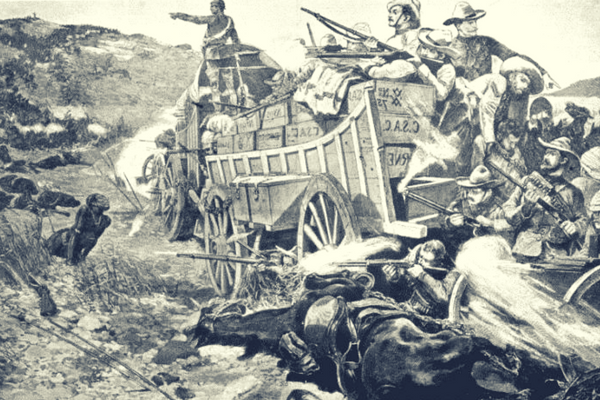
Early Resistance in Zimbabwe in the 1890s
After 1890, the British South Africa Company (BSAC) introduced various measures to force natives to sell their labor cheaply and to steal their wealth. However, they met a lot of resistance in their quest. From 1894, they introduced the hut tax, and forced labor also known as Chibharo, trade with the Portuguese was banned to stop the natives from acquiring guns. All these messages measures were introduced to force Africans to work for the British settlers instead of themselves. The settlers decided they wanted the men to work for them while the women and children remained on small plots of land with the worst soil for farming. After only a few years the British settlers realized that the only way capitalism would work is if it was supported by cheap local labor.
Between 1890 and 1896, there were many small forms of resistance against the British settlers. Several chiefs like Makoni, Nyandoro and Budya launched many attacks against the settlers. Other tribes survived through passive resistance, by hiding their cattle from tax collectors, and moving to neighboring villages during tax collection periods. Many of the early British settlers lacked the capital to pay for development and labor and resorted to stealing land and cattle from natives and forcing them to work for almost nothing.
The armed resistance began in Matabeleland in 1896. The main goal was to drive out British settlers. The natives chose to specifically target areas with the most Europeans including farm houses on farms occupied by the settlers, police posts, stores, missions. The goal was to attack European settlers and locals who worked for, collaborated and supported the settlers.
One of the most important battles took place on April 25th at Umgusa, close to Zimbabwe’s second largest city of Bulawayo. Although the Ndebele fought hard and suffered many casualties they were not able to defeat the BSAC soldiers. By June 6, the settlers were more prepared to fight the Ndebele and defeated them at Umgusa. While the BSAC barely won their battles, the company was on the brink of bankruptcy and investors were threatening Rhodes that they would pull out their investments.



1 Comment
by Afrogal
This article is informative & well researched. When ignoramus africans say dont blame the colonialists you have to stop & wonder …this information shows that europe got rich off Africa period.Not innovation but the exploitation of human capital.
Comments are closed.